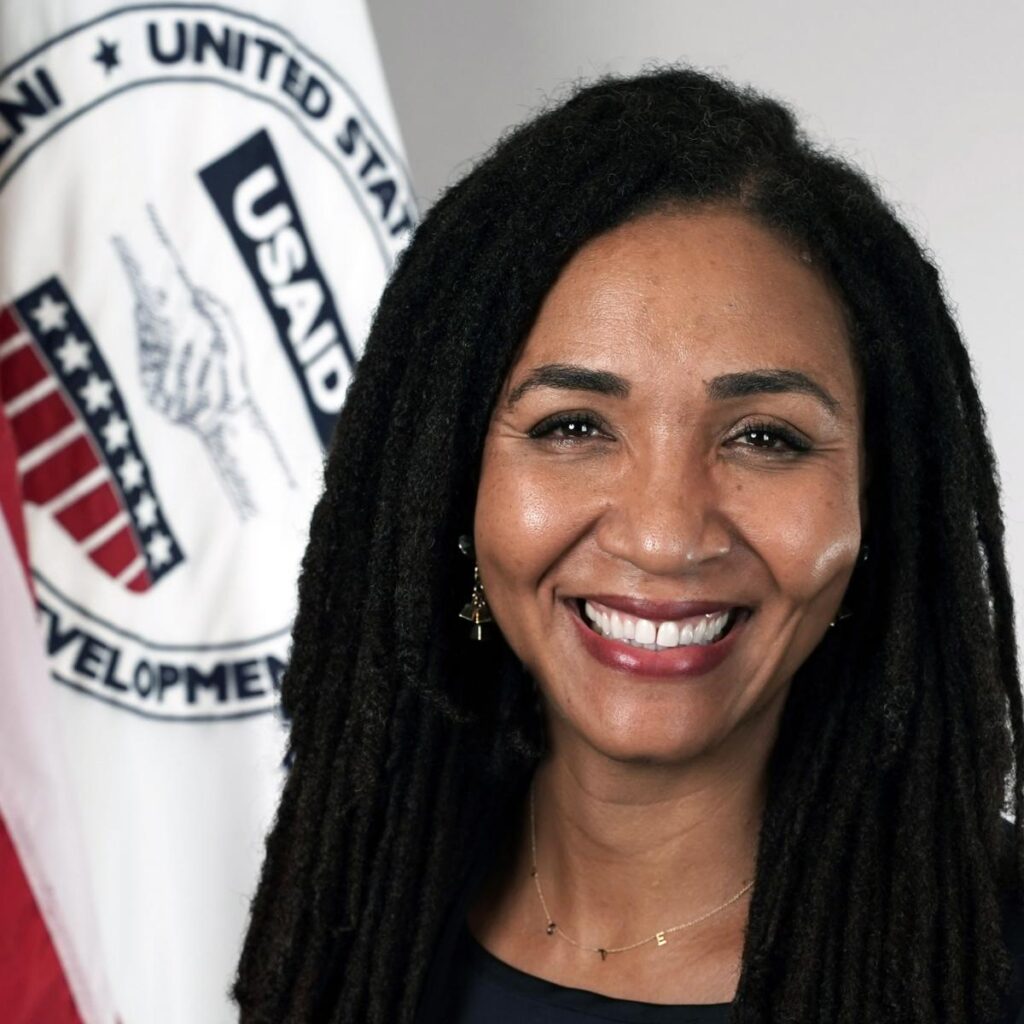


Paloma Adams-Allen joined the Inter-American Foundation (IAF), a U.S. agency supporting community-led development in Latin America and the Caribbean, in April 2017 as president and chief executive officer. She has served as deputy assistant administrator for USAID’s Latin America and Caribbean (LAC) Bureau. She also spent a decade at the Organization of American States (OAS) in several hemispheric development policy, programming, and leadership roles.
On U.S. Global Leadership: In testimony before the House Foreign Affairs Subcommittee on the Western Hemisphere, Adams-Allen said, “To have greater impact, USAID’s programs must be expanded to more communities and reach more people. With additional resources, we are prepared to do just that.” (Source)
On Development: Adams-Allen contended “Our goal in development has to be local solutions, the localization of everything that we’re doing…and in my view in order for that local ownership to happen, the communities have to be not only at the table, but they have to be at the head table, leading the conversation, and we really have to learn to listen.” (Source)
On What’s it Worth: In an interview in 2021 Adams-Allen explained, “We not only have to think of the folks we’re working with in countries and in the communities as partners, and that we’re doing this work together towards a common good, but we, in development, also have to make a better case and to do better at explaining to the American people who are struggling in many ways and very similar ways to people you work with abroad, explain to them what the value is of that development dollar, which is their taxpayer dollar, what the value of that dollar is to them and to our communities here.” (Source)
On Root Causes of Migration: Testifying before the House Foreign Affairs Subcommittee on the Western Hemisphere, Adams-Allen explained, “This problem requires a strategic and sustained long-term effort to ensure that we don’t end up dealing with an ongoing cyclical phenomenon. In order to help Central American governments create an environment in which all of their citizens are able to survive and thrive, we must work together to eliminate the underlying factors driving migration.” (Source)
On Listening: In a congressional hearing on human rights in Haiti, Adams-Allen stated, “We have learned over the decades that nothing we do will be sustainable if the people whose lives we seek to improve do not value and ultimately own that effort. Thus, listening to the people and communities most impacted by extreme poverty, violence, disease, and natural disasters—the people who also have the least access to traditional donors and little or no say in externally-designed development solutions.” (Source)